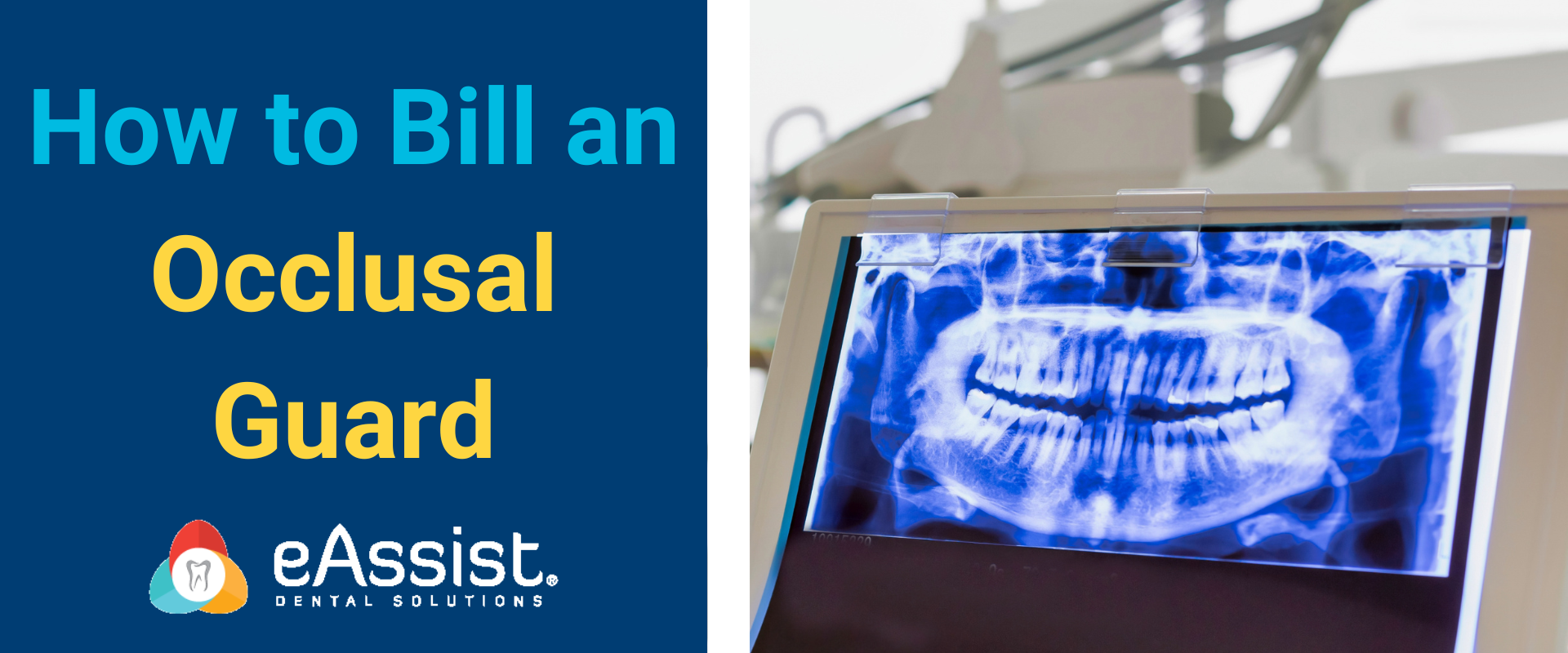Sometimes there are complications in insurance billing that take time and research to solve. Insurance billing has challenges that often need a team to solve. The following is a communication between two insurance billing experts at eAssist. This is a real scenario but the names of participants have not been used.
eAssister #1
I have a patient that had a crown done in 06/2/14 because of fx due to heavy bruxism crown fractured and split in half…plan is with BCBS of TN and guidelines are, crowns covered 1×60 month period regardless of condition or reason for fracture, repair is covered 1×12 months.
This scenario is as follows:
The crown has been completely replaced due to bruxism and a special bruxzer crown was made. Pt’s condition is so (I do not want to use the word severe, but close to it) “uncomfortable” that it gets to the point that she needs to take aspirin for headaches (wears NG).
The crown done in 2014 was partially paid due to pt being maxed out. Have you seen crowns get paid if the office requests to have the additional fee paid for the replacement crown? Do you think we have a chance to submit for the crown under these conditions or just go for the repair?
eAssister #2
No, I have never seen a crown that has been paid pay again within the frequency limitation because it failed. This is a policy provision/limitation and not anything to do with the quality of care. Bruxism is common and commonly diagnosed and the dentist usually does either gold or bruxer, zirconium crowns to absorb the great forces of bite pressure. The fact that the crown did not last but fractured leads me to ask what the crown that fractured was made of? If it was a PFM or a regular Cerec or porcelain the chance of a fracture is high. The patient was wearing a bite or occlusal guard but my guess is not all the time. Along with this the dentist usually reduces the load on the new crown with occlusal adjustments.
The problem with this is whether to charge the patient. Is it the patient’ bruxism, faulty or inappropriate crown material or the bite is too high on the crown? Many dentists just replace it free or for a prorated amount because it is only two years old but make sure the patient understands that they will not replace it for free twice. I used to send the fractured crowns back to the lab if I suspected faulty workmanship and ask for a refund.
Because of these questions the insurance company sticks to its policy provisions. It doesn’t mean you don’t send in an appeal and try for the sake of the patient.
Did the patient sign a disclaimer or a treatment plan stating that the crown would be covered for defects in workmanship for a period of 1 year after placement? And that there would be no complimentary replacement due to bruxism?
Many dentists warranty their crowns/prosthetics for a period of 1 to 5 years as long as patients follow directions such as use of the occlusal guard and keep their regular hygiene appointments.
So, I would send in an appeal for coverage for the replacement crown first based on the failure of the original crown due to increased occlusal forces(take notes of headaches pain etc. from clinical notes) causing need for a crown of specific materials. If you get a denial then bill for the repair of the crown (if it can be repaired?)
If neither are covered it will be an issue between the doctor and patient as far as what will have to be paid.






